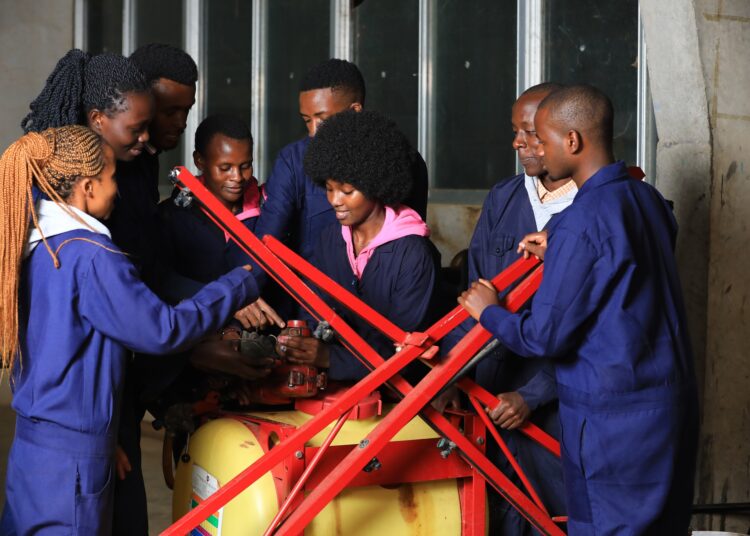Jomo Kenyatta University of Agriculture and Technology (JKUAT) recently had its Bachelor of Mechanical Engineering degree program granted international accreditation under the Washington Accord. The recognition, announced in early April 2025, places JKUAT among a select group of global institutions whose engineering programs meet internationally benchmarked standards of education.
The accreditation is valid for a five-year term and applies to the program offered by the College of Engineering and Technology (COETEC) at JKUAT. It signifies that the university’s curriculum aligns with the stringent academic and professional requirements upheld by the Washington Accord—a multinational agreement among engineering accrediting bodies from over 20 countries, including the United States, the United Kingdom, Canada, Australia, and others.
“This is a great honor to us and a privilege to know that the resources we have put in the training of engineering students has led to international recognition,” said JKUAT Vice Chancellor, Prof. Victoria Ngumi, in a speech read on her behalf by Deputy Vice Chancellor, Academic Affairs, Prof. Robert Kinyua. She added, “The accreditation reaffirms the university’s commitment to producing world-class engineers equipped with the skills required to drive innovation and solve complex engineering challenges worldwide.”
The Washington Accord accreditation grants JKUAT engineering graduates enhanced global career mobility, allowing their academic qualifications to be recognized in all member countries. This opens pathways for professional registration, postgraduate studies, and employment opportunities in globally competitive sectors.
Prof. Ngumi acknowledged the role played by local oversight bodies in the achievement. “We appreciate the Engineers Board of Kenya (EBK) for believing and trusting our systems to deliver internationally recognized academic programs,” she noted.
The announcement follows an extensive independent review conducted at JKUAT by the Engineering Accreditation Committee (EAC), which operates under the Engineers Board of Kenya. During the program evaluation process, a team of assessors scrutinized multiple aspects of the Mechanical Engineering curriculum, including course content, teaching methodologies, faculty credentials, laboratory infrastructure, and student outcomes.
Speaking during the assessment meeting, EBK Chairman Eng. Erastus K. Mwongera praised JKUAT’s proactive approach and the commitment it demonstrated throughout the accreditation process. “Such dedication is commendable. It ensures that graduates meet the standards required for registration by the Board,” he said.
Eng. Prof. Sylvester Abuodha, Chairman of the EAC, echoed these sentiments, emphasizing the importance of regular evaluations. “This process is an international requirement. It ensures that engineering programs are assessed by a competent authority and conform to global quality standards,” he said.
In a related development, EBK recently conducted a separate assessment of JKUAT’s Bachelor of Science in Water and Environmental Engineering program. The evaluation, which also involved the EAC, examined curriculum quality, faculty expertise, and laboratory adequacy to ensure compliance with national and international benchmarks.
Source: JKUAT News








